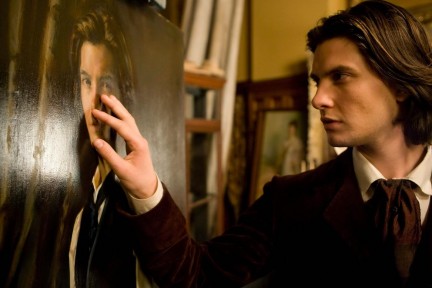I know, I haven’t posted for a very long time. It’s been so frustrating–for some reason my computer won’t let me sign into my website. Every time I try I get a message saying the connection has timed out. I finally am getting on on another computer for now, but hopefully I can get this issue resolved soon!
That said, this post has had a good long time to percolate in my mind, so it should be a good one, right?
Recently I read The Picture of Dorian Gray for the first time. I’ve heard of it many times before, and I’m a huge fan of Wilde’s play The Importance of Being Earnest but I had just never gotten around to reading this one before. Technically I didn’t read it even now. I listened to it. Audiobooks are the best, especially with a baby around!
Anyway, the book got me thinking. A lot. Which is what I loved about it. It’s a very strange story on its face, but it provokes so much thought. So much philosophical questioning. It prompts the reader to ask themselves so many questions about life and morality and the nature of conscience and societal expectations. And I absolutely love that. I love thinking new thoughts and asking myself about moral and philosophical dilemmas.
I love things that cause me to think deeply.
The Picture of Dorian Gray is fantasy. It’s not very typical fantasy, to be sure–not really the type of thing we first think of when we think of fantasy fiction. But it is. Because in real world having a picture that ages and bears the signs of your actions while you yourself remain young and unaffected is, of course, impossible. That’s what fantasy is. It’s the impossible brought to life. It’s fiction with supernatural elements.
And it’s that very impossibility that is the very best thing about fantasy, science fiction, and speculative fiction in general. The “speculative” part.
Let me explain. No, there is too much. Let me sum up.
The fact that we can’t have such a painting in real life is exactly what makes The Picture of Dorian Gray powerful. If it weren’t for the fantastical painting, the story would have no point. And that’s exactly why I love speculative fiction. It’s that “otherness”–that exploration of things that can’t happen in the real world–that allows us to explore issues most deeply. Issues that we’re used to thinking of a certain way in the context of our world can be turned upside-down so that we can look at them a whole new way.
In essence, speculative fiction stretches not only our imagination but our minds themselves. Our ideals. Our worldviews. It forces us to think “what if” about not just things, but opinions. It makes us ask whether we’re truly right in what we think.
And it does it in an entertaining way. We shape ourselves and have fun all in one story.
What could be more delightful than that?

I loooove books that make me think. And think hard. I need to try Dorian Gray.
Thanks for sharing this wonderfulness!